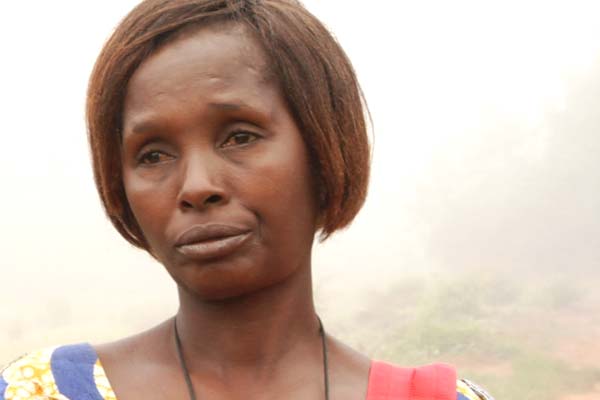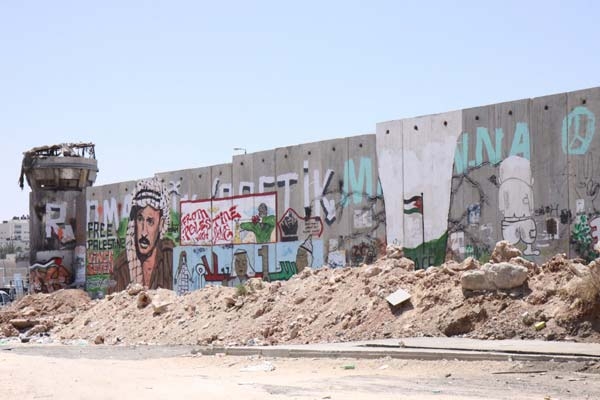Imagine someone has taken away the most precious thing to you, be it your child, your husband, your wife, your mother, your father, your brother, your sister (or all of the above) – and in the most violent and horrific way. Imagine then turning to that same person, not with anger or vengeance, but with open arms offering forgiveness and further still, friendship.
For many people such a scenario would be unthinkable, but for Jo Berry and others featured in the documentary, 'Beyond Right And Wrong: Stories Of Justice And Forgiveness', they do exactly that, telling their stories of overcoming unimaginable tragedy and turning their journey of hurt and healing into something positive by reaching out to the very people who caused their pain.
 From what originally stemmed as an idea for a book, 'Beyond Right And Wrong: Stories Of Justice And Forgiveness' took on another life when self-prescribed impact-junkie and fine art photographer/ filmmaker, Lekha Singh, realised she could reach more people if her work was made into a film.
From what originally stemmed as an idea for a book, 'Beyond Right And Wrong: Stories Of Justice And Forgiveness' took on another life when self-prescribed impact-junkie and fine art photographer/ filmmaker, Lekha Singh, realised she could reach more people if her work was made into a film.“The idea came from a time when I was in Rwanda and I met this woman whose five children were killed in the Rwandan Genocide and I saw her sharing a soda with the person who had killed her children,” explains Singh.
 Jean-Baptiste Ntakirutimana
Jean-Baptiste Ntakirutimana“I just couldn’t understand or believe it, I was completely bamboozled because who can forgive someone for doing that to your child, so this film is my enquiry into that.
“It took seven years to make and since then it has been used in so many ways that I never dreamt of life in prisons and in marriage counselling, military training and even hospices, so it’s very impactful.”
For their Australian tour of 'Peace And Forgiveness', Berry and Singh are travelling across the country reaching out to various schools and communities in the name of spreading the message of finding peace and forgiveness in situations of conflict and trauma.
 Bassam Aramin
Bassam Aramin“The film is not prescriptive in any way and we don’t say, 'do this' or 'do that', but it’s the point that forgiveness is a possibility that might exist, so generally after people have stopped crying enough and after the blood has dried or the screams are silenced, that’s when people can start to think about forgiveness and this sort of process can happen,” explains Singh.
“The forgiveness part is not really for the perpetrator, it’s for the person who has been hurt and is a form of healing... [Forgiveness] has many names, you can call it reconciliation, you can call it compassion, you can call it kindness; it’s a spectrum and an everyday thing, so all the emotions are valid.”
 Jo Berry
Jo Berry Jo Berry, whose father and Conservative Politician, Sir Anthony Berry, was killed in the 1984 IRA bombing of the Grand Hotel in Brighton, was asked to feature in the film after her own story of forgiveness and the work she now does with the man who murdered her father, Patrick Magee, caught Singh’s attention.
“I was invited to take part in the film seven years ago and had no idea quite where it was going to lead to, but I was very happy to be interviewed and to be a part of it,” says Berry.
 Beata Mukangaramb
Beata Mukangaramb“The film has had a very big impact on people and everywhere we have been, people have been touched and shared whether it’s made them think about something in a different way, so it always has a very powerful effect, whether it be with young people or adults.
“For me, being part of this film is incredible validation and acknowledgement and to know that I’m part of this group of amazing people and being part of this network with the people in the film actually gives me a lot.”
 Emmanuel Bamporiki
Emmanuel BamporikiSince their first meeting in 2000, Jo and Patrick have travelled the world together telling their story to different audiences and continue to visit different areas of conflict with the aim of showing people that peace and forgiveness can be achieved.
Jo has also set up her own NGO – Building Bridges For Peace – and it is her mission to empower young people about being positive change makers and that everyone has the potential to make a difference in the world.
 “The feelings of anger and frustration and feelings of apathy caused by trauma and conflict can be channelled into changing the world, and we are living in a remarkable time where there are so many ways to learn peace building or conflict transformation,” explains Berry.
“The feelings of anger and frustration and feelings of apathy caused by trauma and conflict can be channelled into changing the world, and we are living in a remarkable time where there are so many ways to learn peace building or conflict transformation,” explains Berry.“That’s what I’ve been doing when I go into schools, I ask the students what they do and tell them to follow their passion in whatever way, whether it’s making a film, doing a course in conflict transformation or whatever.
“I go back to the day the bomb went off and two days later thinking, 'I’m going to bring something positive out of this', so I don’t ever get to a point where I think 'oh I’ve done enough now' because it’s fresh and new every day.”
 Pat Magee
Pat MageeIn addition to Jo Berry’s incredible story, 'Beyond Right And Wrong: Stories Of Justice And Forgiveness' also explores the story of two men – one Israeli (Bassam Aramin), one Palestinian (Rami Elhanan) – who form a bond after tragedies claim their daughters.
A particularly powerful moment in the film shows a peaceful demonstration held by both Palestinian and Israeli peace workers (including the Israeli man who lost his daughter) who join forces over a piece of Palestinian land taken over by the Israeli army.
 Robi Damelin
Robi DamelinThe scene shows that amidst the constant negative media coverage coming from the region, there are in fact Israelis and Palestinians working together peacefully to end the conflict and one can’t help but question what kind of difference seeing such scenes could potentially make to the two countries and to the world.
Lekha Singh’s view on that very issue is quite simple and straight to the point: “violence and sex are much more interesting – peace is boring,” she says bluntly.
 Rami Elhanan
Rami ElhananA universal film with a universal message, 'Beyond Right And Wrong: Stories Of Justice And Forgiveness' has the power to reach any audience and doesn’t just speak to people in extreme conflict, but to people in every day situations – be it conflict at work, conflict in a marriage or someone’s relationship to their children or family.
“I think the issues explored in this film are part of every day life all the time, we just don’t acknowledge it and what I’ve shown in this film are the extremes... These are human stories and the stories broke my heart, yet gave me enormous hope.”
“I hope this film illustrates the strength of the survivors and expresses the possibility of an alternative path towards justice, a solution rooted in neither violence nor hatred,” she says.
'Beyond Right And Wrong: Stories Of Justice And Forgiveness' can be viewed online for free here.


